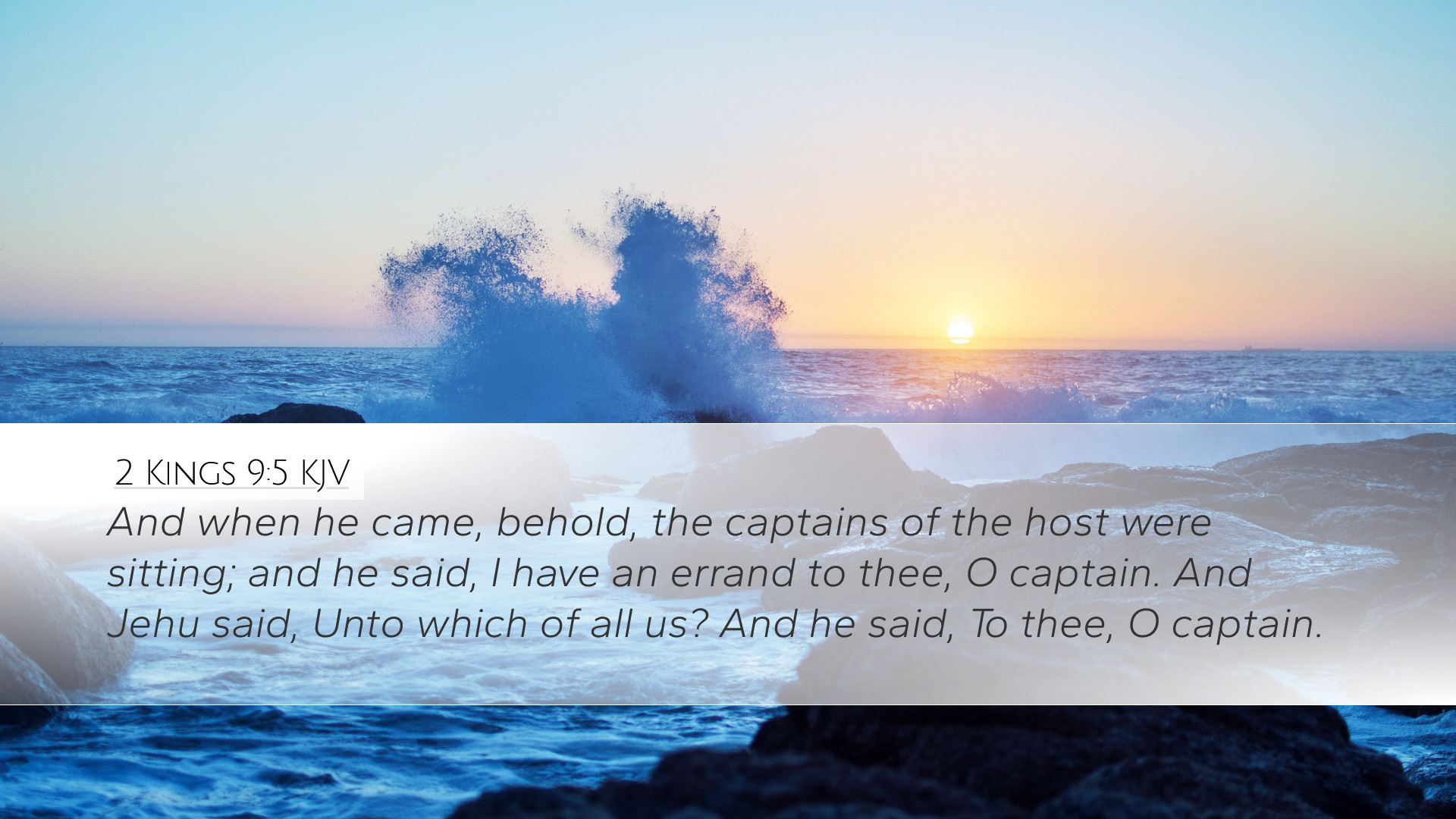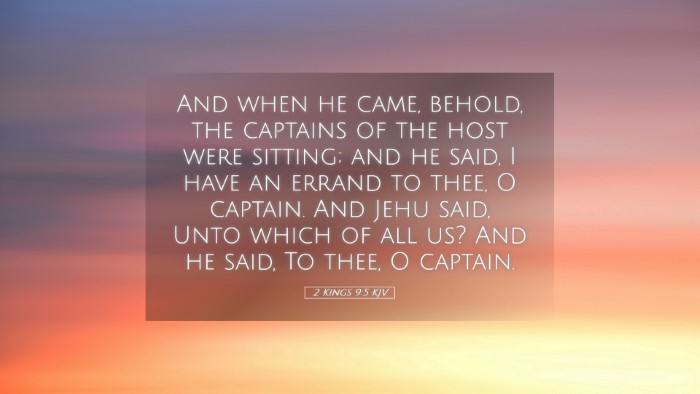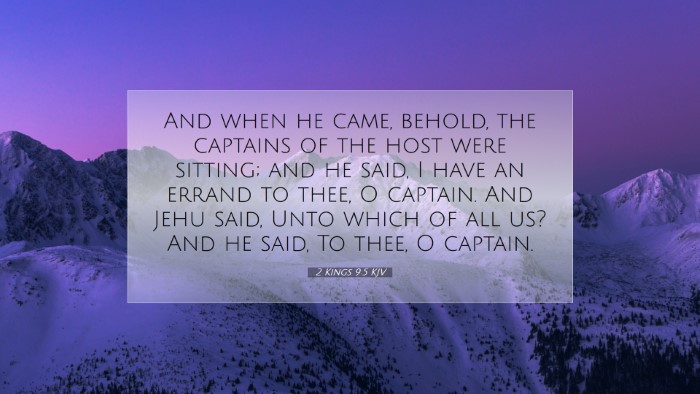Commentary on 2 Kings 9:5
Verse Context: 2 Kings 9:5 states, “When he came, behold, the captain of the guard was standing by the tent; and he said, 'I have an errand to you, O captain.' And Jehu said, 'To which of all us?' And he said, 'To you, O captain.'” This pivotal moment in the narrative marks the anointing of Jehu as king of Israel, a significant transition in the theological narrative concerning the nation’s fidelity to God.
Exegesis and Analysis
This verse occurs during a crucial time in Israel’s history, where moral corruption under King Ahab's lineage is rampant. The selection of Jehu, a military commander, is deliberate, indicating that God can use even those within the military sphere to implement divine justice.
Historical Background
According to Matthew Henry, historical context—rooted in the disobedience of the kings and the resultant prophetic judgments—is vital to understanding the urgency of this moment. Ahab and Jezebel’s influence led Israel into idolatry, and God's judgment was set in motion through the anointing of a new leader who would purge the land of Baal worship.
Theological Significance
Albert Barnes emphasizes that the anointing of Jehu signifies God’s sovereign rule over nations. The phrase “I have an errand to you, O captain,” speaks to God's providential guidance. In this, we see a foreshadowing of God’s plan unfolding. Jehu’s ascent to the throne is not merely political; it is divinely orchestrated to rectify the spiritual crisis in Israel.
Character of Jehu
Adam Clarke provides insight into Jehu’s character. Renowned for his zeal and military prowess, Jehu’s selection illustrates that God frequently uses individuals with worldly authority to fulfill spiritual purposes. His military background is crucial in mobilizing immediate action against the idolatrous practices of Israel.
Literary Devices
The narrative employs direct speech, emphasizing the immediacy of the situation. The use of the term “O captain” conveys a sense of urgency and respect for Jehu’s position while simultaneously indicating that the forthcoming message transcends his military role.
Role of Prophets
The role of the prophet in this scene cannot be overlooked. Just as Matthew Henry points out, the prophet delivers messages that come directly from God. This reinforces the concept that God's will is not merely personal but has national implications, positioning the prophets as vital intermediaries between God and His people.
Application for Modern Readers
For contemporary pastors and theologians, this verse serves as a reminder that God can raise leaders from unexpected places to bring about His plans. It encourages a deeper understanding of how God works through historical events and political structures to fulfill His prophetic vision.
Lessons on Divine Sovereignty
- Divine Selection: God’s selection of Jehu highlights that His choices often defy human understanding. Leaders in the church and society must earnestly seek God’s will and guidance.
- Faithfulness to God’s Command: Jehu’s response to the prophetic word serves as a model for urgency and commitment to divine missions that require immediate obedience.
- Call to Purification: The mandate given to Jehu to eradicate idolatry beckons modern believers to examine their lives and congregations for any unholy practices, clearly calling for spiritual renewal.
A Concluding Thought
In conclusion, 2 Kings 9:5 encapsulates a crucial turning point towards restoration. As discussed by Albert Barnes, understanding this narrative requires recognition of God’s desire for His people to return to righteousness. As we explore the depths of this call to leadership and purity, may we be inspired to remain faithful to the directives of the Lord, understanding that He can and will act through us, even in the complexities of our modern context.


